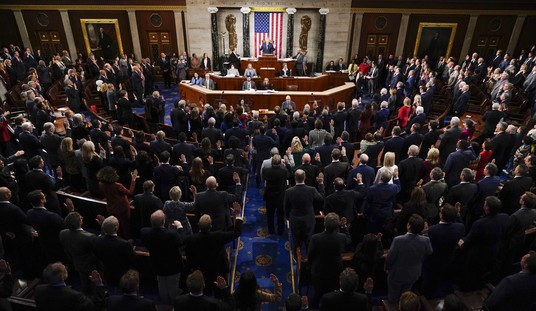Earlier today, President Trump announced a push to protect prayer in public schools, saying, "To have a great nation, you have to have religion."
While speaking about the issue, President Trump had a 12-year-old boy from California join him on stage to share how he was forced to read a book that contradicted his beliefs to a kindergarten buddy.
WATCH:
.@POTUS welcomes to the podium 12-year-old Shay from California, who was forced to read a book to a kindergarten student promoting a message of radical gender ideology that is contrary to his religious beliefs:
— Rapid Response 47 (@RapidResponse47) September 8, 2025
"I've been a Christian my whole life and Jesus means everything to… pic.twitter.com/KAtQL8CsOD
The young man told the crowd, "I've been a Christian my whole life and Jesus means everything to me... I believe kids like me should be able to live our faith at school without being forced to go against what we believe."
This is not the Trump administration's first foray into protecting prayer and religious expression. On July 28, the Office of Personnel Management (OPM) issued a memo protecting religious expression in the workplace. That memo read in part:
Recommended
Federal employees enjoy broad religious expression rights in the workplace.8 Title VII of the Civil Rights Act of 1964 prohibits discrimination in employment because of an individual’s religion, among other protected characteristics. “Title VII does not demand mere neutrality with regard to religious practices—that they be treated no worse than other practices.”Instead, it “gives them favored treatment,” obligating agencies not to discipline or discharge employees for their“religious observance and practice.” This is necessary “to ensure religious persons’ full participation in the workforce." Accordingly, Title VII requires employers to reasonably accommodate an employee’s religious observances, practices, and beliefs unless doing so would cause an undue hardship on the conduct of the employer’s business. Further, “a coworker’s dislike of religious practice and expression in the workplace . . . is not cognizable to factor into the undue hardship inquiry.”
...
Employees must be allowed to engage in private religious expression in work areas to the same extent that they may engage in nonreligious private expression. Agencies may, however, reasonably regulate the time, place and manner of all employee speech, provided such regulations do not discriminate based on content or viewpoint (including religious viewpoints). Agencies may require that employees perform official work while on duty, as opposed to engaging in personal religious observances.
The memo also gave a list of behaviors that should not be subject to disciplinary or other corrective action, including the display or use of religious items such as icons, individual or group religious expression, and expression around members of the public.
The Freedom From Religion Foundation (FFRF) opposed the July workplace, calling it "outrageous" and "Christian nationalism."
Similarly, the FFRF came out against this new push for prayer in public schools. Chris Line, legal counsel for the FFRF, said the statement was "a lot of theater without a lot of substance" and that the move was about "advancing religious privilege."
Rachel Laser, President of Americans United for the Separation of Church and State, also criticized the move, saying it's a "lie that America is a Christian nation and that religion is under attack."
Both groups conveniently ignore the story shared by young Shay, of course, but Americans United for the Separation of Church and State sent a letter to the Religious Liberty Committee claiming the true threat to religious freedom is "Christian Nationalists and their extremist allies that are working to erode the separation of church and state and impose their specific set of values on all Americans."


